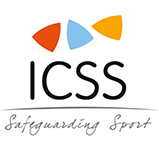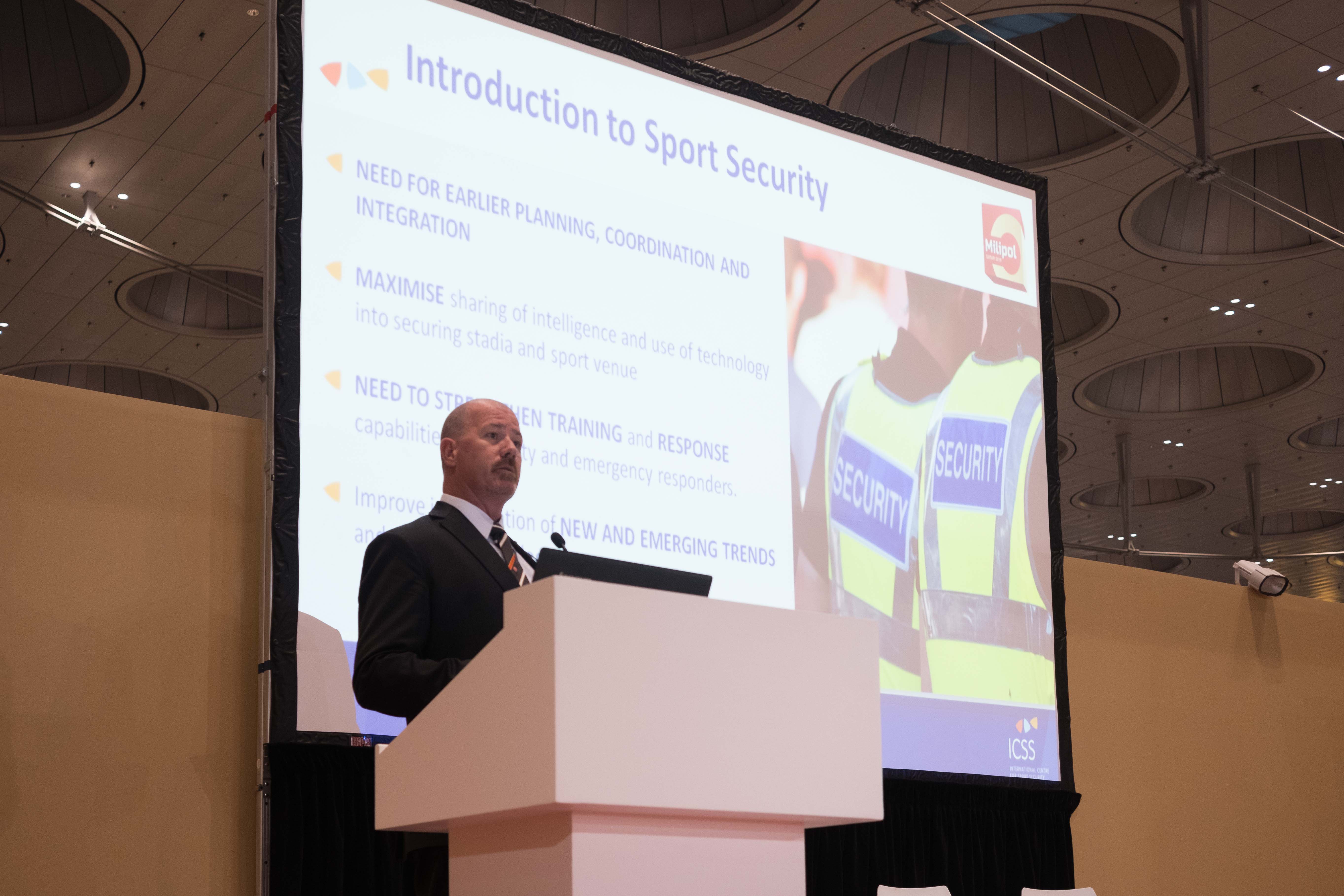“Integration is the key to success in sport safety and security”: ICSS expert at Milipol Qatar 2016
A leading Safety and Security expert from the International Centre for Sport Security (ICSS) spoke at MilipolQatar 2016, the leading event dedicated to homeland security in the Middle East, and encouraged host cities and nations of major international sport events to develop a more integrated, coordinated approach to their safety and security planning.
Speaking on the seminar session entitled ‘Safe / Smart Cities & Large Events Security Management’, Andrew Cooke, ICSS Director of Security Operations, drew upon his 25 year experience working in security and risk management, as well as his previous role as Head of Security at the 2015 AFC Asian Cup in Australia, to highlight several ways how organisers of major international sport events can successfully integrate and coordinate their local, regional and international security efforts, as well as the importance of doing this at an earlier stage of the event life cycle.
Speaking during the session, Andrew Cooke, Director of Security Operations at the ICSS, said:
“The challenge of securing major sport events has never been greater or more complex, particularly with the growing focus on budgets and cost-effectiveness of major sport events, as well as the growing influence of technology at sport venues and stadia.
“As a result, the need for better integration and coordination around major event safety and security is vital, not only to ensure major events are cost-effective and fall within budget but also to ensure fans, spectators, players and officials are properly protected.” During his presentation, Andrew highlighted several areas for hosts of major international sporting events to pay special attention to when developing their security plan in order to ensure their security arrangements are fully integrated alongside other stakeholders.
Emphasising that ‘one size does not fit all’ when it comes to safety and security around major sport events, Andrew recommended the following focus areas:
- Intelligence sharing at local, government and international level
- Early stakeholder engagement and communication, particularly across functional areas
- Flexible proactive and reactive approach to security risk management
- Affordability and Scalability e.g. within budget and increasing with threat level
- Human vs technology integration
- Flexible threat and risk assessment plan
Looking forward, Andrew also highlighted several emerging trends in the sport security sector. He concluded: “Technology is now playing an increasingly vital role in the lives of sports fans and how they consume major sports events. As a result, this presents new challenges as a sport security professional.
“In particular, over the coming years I think you will see major events use behavioural and crowd technology, as well as video analytics, biometrics and facial recognition in their security concepts. In addition, as the influence of mobile and digital technology inside and outside the stadia continues to increase, so will I think the threats and challenges around protecting our personal information and data.
“As a result, I think it will be increasingly important for host cities and countries to upgrade their cybersecurity technology and think this will be a growing area of interest for many major sporting events and venues, particularly in the short to medium term.”
Questions for Andrew? Reach him out in Twitter @DirSecICSS or check out his LinkedIn profile.

